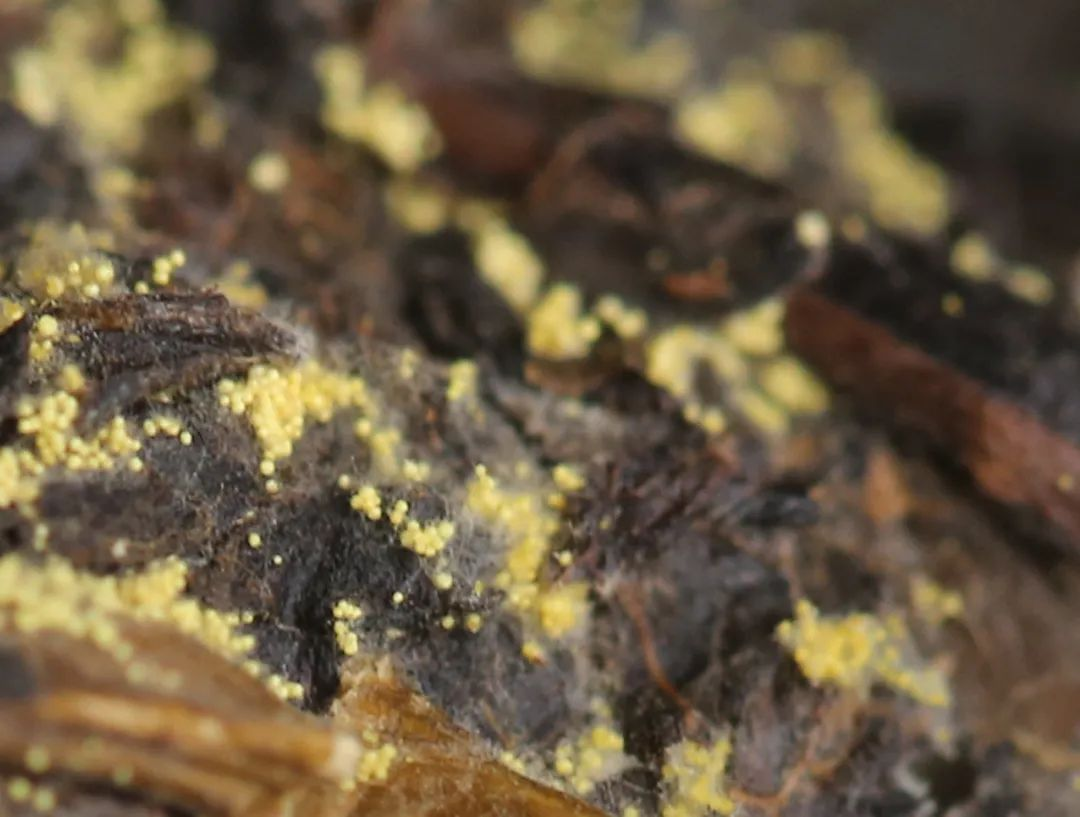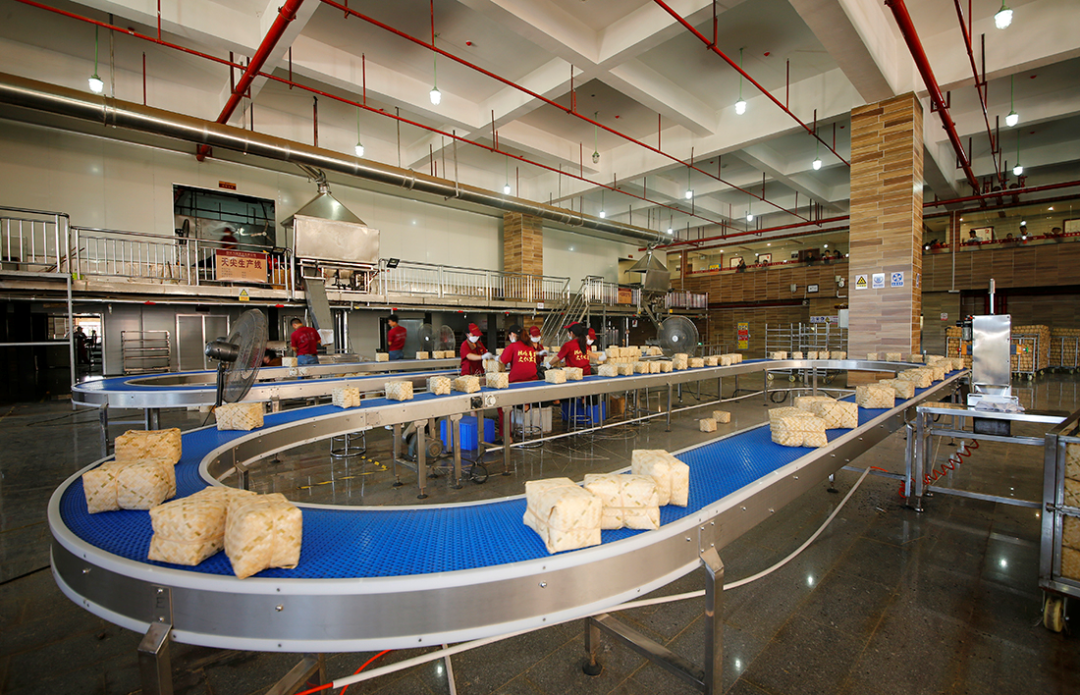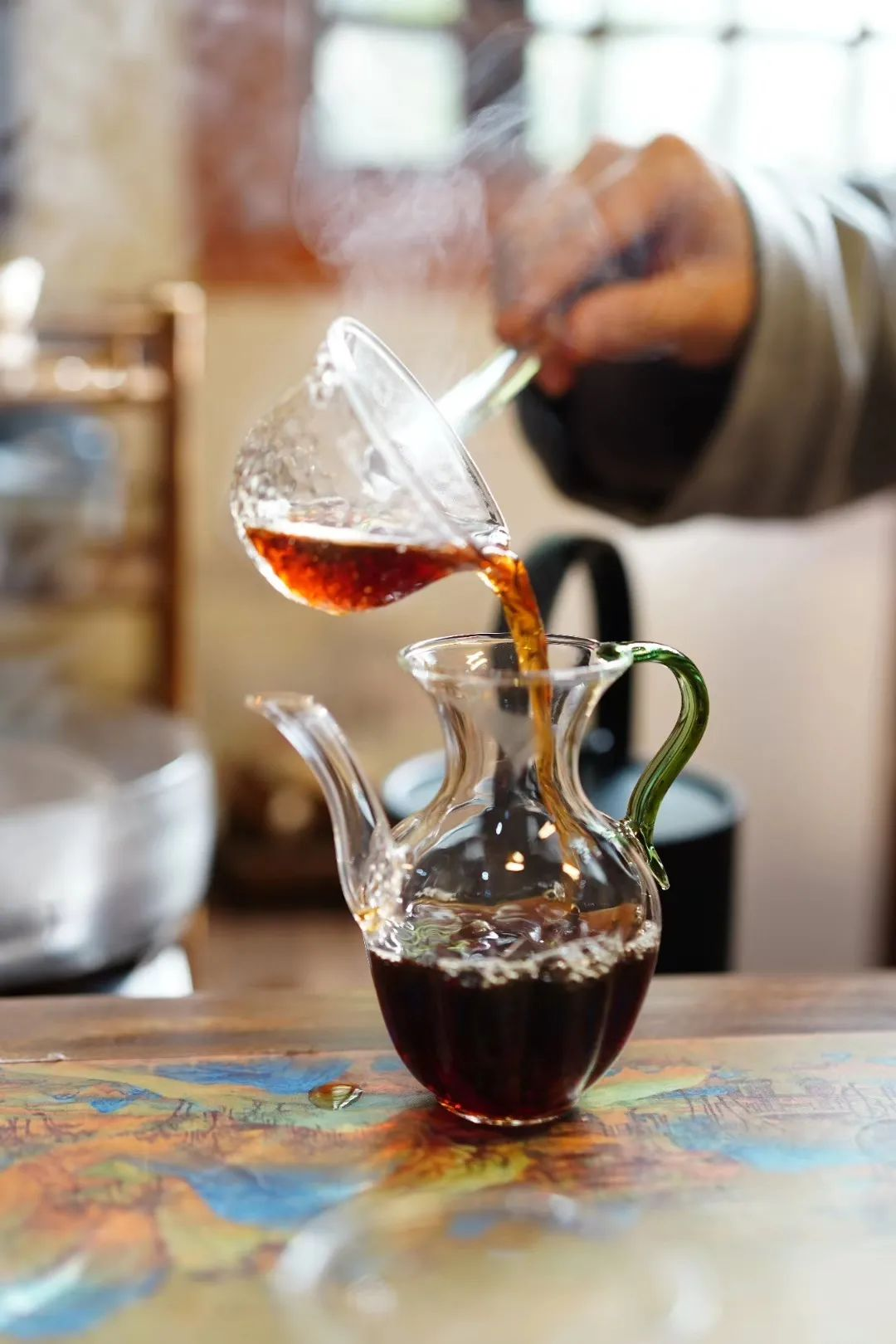The anti-inflammatory and detoxifying effects of tea have been recorded as early as Shennong herbal classic. With the development of science and technology, people pay more
and more attention to the health care function of tea. Tea is rich in tea polyphenols, tea polysaccharides, theanine, caffeine and other functional components. It has the potential to prevent obesity, diabetes, chronic inflammation and other diseases.
Intestinal flora is considered as an important “metabolic organ” and “endocrine organ”, which is composed of about 100trillion microorganisms in the intestine. Intestinal flora is closely related to the occurrence of obesity, diabetes, hypertension and other diseases.
In recent years, more and more studies have found that the unique health care effect of tea can be attributed to the interaction between tea, functional components and intestinal flora. A large number of literatures have confirmed that tea polyphenols with low bioavailability can be absorbed and utilized by microorganisms in the large intestine, resulting in health benefits. However, the interaction mechanism between tea and intestinal flora is not clear. Whether it is the direct effect of metabolites of tea functional components with the participation of microorganisms, or the indirect effect of tea stimulating the growth of specific beneficial microorganisms in the intestine to produce beneficial metabolites.
Therefore, this paper summarizes the interaction between tea and its functional components and intestinal flora at home and abroad in recent years, and combs the regulatory mechanism of “tea and its functional components – intestinal flora – intestinal metabolites – host health”, in order to provide new ideas for the study of the health function of tea and its functional components.
01
Relationship between intestinal flora and human homeostasis
With the warm and indivisible environment of the human intestine, microorganisms can grow and reproduce in the human intestine, which is an inseparable part of the human body. The microbiota carried by the human body can develop in parallel with the development of the human body, and maintain its temporal stability and diversity in adulthood until death.
Intestinal flora can have an important impact on human immunity, metabolism and nervous system through its rich metabolites, such as short chain fatty acids (SCFAs). In the intestines of healthy adults, Bacteroidetes and Firmicutes are the dominant flora, accounting for more than 90% of the total intestinal flora, followed by Actinobacteria, Proteobacteria, verrucomicrobia and so on.
Various microorganisms in the intestine combine in a certain proportion, restrict and depend on each other, so as to maintain the relative balance of intestinal homeostasis. Mental stress, eating habits, antibiotics, abnormal intestinal pH and other factors will destroy the steady-state balance of the intestine, cause the imbalance of intestinal flora, and to a certain extent, cause metabolic disorder, inflammatory reaction, and even other related diseases, such as gastrointestinal diseases, brain diseases and so on.
Diet is the most important factor affecting intestinal flora. Healthy diet (such as high dietary fiber, prebiotics, etc.) will promote the enrichment of beneficial bacteria, such as the increase in the number of Lactobacillus and Bifidobacterium producing SCFAs, so as to enhance insulin sensitivity and promote host health. Unhealthy diet (such as high sugar and high calorie diet) will change the composition of intestinal flora and increase the proportion of Gram-negative bacteria, while too many Gram-negative bacteria will stimulate the production of lipopolysaccharide (LPS), increase intestinal permeability, and lead to obesity, inflammation and even endotoxemia.
Therefore, diet is of great significance for maintaining and shaping the homeostasis of intestinal flora of the host, which is directly related to the health of the host.
02
Regulation of tea and its functional components on intestinal flora
So far, there are more than 700 known compounds in tea, including tea polyphenols, tea polysaccharides, theanine, caffeine and so on. Studies have shown that tea and its functional components play an important role in the diversity of human intestinal flora, including promoting the growth of probiotics such as akkermansia, bifidobacteria and Roseburia, and inhibiting the growth of harmful bacteria such as Enterobacteriaceae and Helicobacter.
1. Regulation of tea on intestinal flora
In the colitis model induced by dextran sodium sulfate, the six teas have been proved to have prebiotic effects, which can significantly increase the diversity of intestinal flora in colitis mice, reduce the abundance of potentially harmful bacteria and increase the abundance of potentially beneficial bacteria.
Huang et al. Found that the intervention treatment of Pu’er tea can significantly alleviate the intestinal inflammation induced by dextran sodium sulfate; At the same time, the intervention treatment of Pu’er tea can reduce the relative abundance of potentially harmful bacteria Spirillum, cyanobacteria and Enterobacteriaceae, and promote the increase of the relative abundance of beneficial bacteria Ackermann, Lactobacillus, muribaculum and ruminococcaceae ucg-014. The fecal bacteria transplantation experiment further proved that Pu’er tea can improve colitis induced by dextran sodium sulfate by reversing the imbalance of intestinal flora. This improvement may be due to the increase of SCFAs content in mouse cecum and the activation of receptors by colonic peroxisome proliferators γ Increased expression. These studies show that tea has prebiotic activity, and the health function of tea is attributed at least in part to its regulation of intestinal flora.

2. Regulation of tea polyphenols on intestinal flora
Zhu et al found that Fuzhuan Tea Polyphenol intervention can significantly reduce the imbalance of intestinal flora in rats induced by high-fat diet, increase the diversity of intestinal flora, reduce the ratio of Firmicutes / Bacteroidetes, and significantly increase the relative abundance of some core microorganisms, including akkermansia muciniphila, alloprevotella Bacteroides and faecalis baculum, and the fecal bacteria transplantation experiment further proved that the weight loss effect of Fuzhuan Tea polyphenols is directly related to the intestinal flora. Wu et al. Proved that in the model of colitis induced by dextran sodium sulfate, the alleviating effect of epigallocatechin gallate (EGCG) on colitis is achieved by regulating intestinal flora. EGCG can effectively improve the relative abundance of SCFAs producing microorganisms, such as Ackermann and Lactobacillus. The prebiotic effect of tea polyphenols can alleviate the imbalance of intestinal flora caused by adverse factors. Although the specific bacterial taxa regulated by different sources of tea polyphenols may be different, there is no doubt that the health function of tea polyphenols is closely related to the intestinal flora.
3. Regulation of tea polysaccharide on intestinal flora
Tea polysaccharides can increase the diversity of intestinal flora. It was found in the intestines of diabetes model rats that tea polysaccharides can increase the relative abundance of SCFAs producing microorganisms, such as lachnospira, victivallis and Rossella, and then improve glucose and lipid metabolism. At the same time, in the colitis model induced by dextran sodium sulfate, tea polysaccharide was found to promote the growth of Bacteroides, which can reduce the level of LPS in feces and plasma, enhance the function of intestinal epithelial barrier and inhibit intestinal and systemic inflammation. Therefore, tea polysaccharide can promote the growth of potentially beneficial microorganisms such as SCFAs and inhibit the growth of LPS producing microorganisms, so as to improve the structure and composition of intestinal flora and maintain the homeostasis of human intestinal flora.
4. Regulation of other functional components in tea on intestinal flora
Tea saponin, also known as tea saponin, is a kind of glycoside compounds with complex structure extracted from tea seeds. It has large molecular weight, strong polarity and is easy to dissolve in water. Li Yu and others fed weaned lambs with tea saponin. The results of intestinal flora analysis showed that the relative abundance of beneficial bacteria related to the enhancement of body immunity and digestive ability increased significantly, while the relative abundance of harmful bacteria positively related to body infection decreased significantly. Therefore, tea saponin has a good positive effect on the intestinal flora of lambs. The intervention of tea saponin can increase the diversity of intestinal flora, improve intestinal homeostasis, and enhance the immunity and digestive ability of the body.
In addition, the main functional components in tea also include theanine and caffeine. However, due to the high bioavailability of theanine, caffeine and other functional components, the absorption has been basically completed before reaching the large intestine, while the intestinal flora is mainly distributed in the large intestine. Therefore, the interaction between them and intestinal flora is not clear.
03
Tea and its functional components regulate intestinal flora
Possible mechanisms affecting host health
Lipinski and others believe that compounds with low bioavailability generally have the following characteristics: (1) compound molecular weight > 500, logP > 5; (2) The amount of – Oh or – NH in the compound is ≥ 5; (3) The N group or O group that can form hydrogen bond in the compound is ≥ 10. Many functional components in tea, such as theaflavin, thearubin, tea polysaccharide and other macromolecular compounds, are difficult to be directly absorbed by the human body because they have all or part of the above structural characteristics.
However, studies have shown that these compounds can become nutrients of intestinal flora. On the one hand, these unabsorbed substances can be degraded into small molecular functional substances such as SCFAs for human absorption and utilization with the participation of intestinal flora. On the other hand, these substances can also regulate intestinal flora, promote the growth of beneficial microorganisms producing substances such as SCFAs and inhibit the growth of harmful microorganisms producing substances such as LPS.
Koropatkin et al found that intestinal flora can metabolize polysaccharides in tea into secondary metabolites dominated by SCFAs through primary degradation and secondary degradation. In addition, tea polyphenols in the intestine that are not directly absorbed and utilized by the human body can often be gradually transformed into aromatic compounds, phenolic acids and other substances under the action of intestinal flora, so as to show higher physiological activity for human absorption and utilization.
A large number of studies have confirmed that tea and its functional components mainly regulate intestinal flora by maintaining intestinal microbial diversity, promoting the growth of beneficial bacteria and inhibiting harmful bacteria, so as to regulate microbial metabolites for human absorption and utilization, and give full play to the health significance of tea and its functional components. Combined with literature analysis, the mechanism of tea, its functional components and intestinal flora affecting host health may be mainly reflected in the following three aspects.
1. Tea and its functional components – intestinal flora – SCFAs – regulatory mechanism of host health
The genes of intestinal flora are 150 times higher than human genes. The genetic diversity of microorganisms makes it have enzymes and biochemical metabolic pathways that the host does not have, and can encode a large number of enzymes that the human body lacks to convert polysaccharides into monosaccharides and SCFAs.
SCFAs is formed by the fermentation and transformation of undigested food in the intestine. It is the main metabolite of microorganisms at the distal end of the intestine, mainly including acetic acid, propionic acid and butyric acid. SCFAs is considered to be closely related to glucose and lipid metabolism, intestinal inflammation, intestinal barrier, intestinal movement and immune function. In the colitis model induced by dextran sodium sulfate, tea can increase the relative abundance of SCFAs producing microorganisms in mouse intestine and increase the contents of acetic acid, propionic acid and butyric acid in feces, so as to alleviate intestinal inflammation. Pu’er tea polysaccharide can significantly regulate intestinal flora, promote the growth of SCFAs producing microorganisms and increase the content of SCFAs in mouse feces. Similar to polysaccharides, the intake of tea polyphenols can also increase the concentration of SCFAs and promote the growth of SCFAs producing microorganisms. At the same time, Wang et al found that the intake of thearubicin can increase the abundance of intestinal flora producing SCFAs, promote the formation of SCFAs in the colon, especially the formation of butyric acid, promote the beige of white fat and improve the inflammatory disorder caused by high-fat diet.
Therefore, tea and its functional components can promote the growth and reproduction of SCFAs producing microorganisms by regulating intestinal flora, so as to increase the content of SCFAs in the body and play the corresponding health function.
2. Tea and its functional components – intestinal flora – bas – regulatory mechanism of host health
Bile acid (BAS) is another kind of compounds with positive effects on human health, which is synthesized by hepatocytes. The primary bile acids synthesized in the liver combine with taurine and glycine and are secreted into the intestine. Then a series of reactions such as dehydroxylation, differential isomerization and oxidation occur under the action of intestinal flora, and finally secondary bile acids are produced. Therefore, intestinal flora plays a vital role in the metabolism of bas.
In addition, the changes of BAS are also closely related to glucose and lipid metabolism, intestinal barrier and inflammatory level. Studies have shown that Pu’er tea and theabrownin can reduce cholesterol and lipid by inhibiting microorganisms related to bile salt hydrolase (BSH) activity and increasing the level of ileal bound bile acids. Through the combined administration of EGCG and caffeine, Zhu et al. Found that the role of tea in reducing fat and weight loss may be because EGCG and caffeine can improve the expression of bile saline lyase BSH gene of intestinal flora, promote the production of non conjugated bile acids, change bile acid pool, and then inhibit obesity induced by high-fat diet.
Therefore, tea and its functional components can regulate the growth and reproduction of microorganisms closely related to the metabolism of BAS, and then change the bile acid pool in the body, so as to play the function of lipid-lowering and weight loss.
3. Tea and its functional components – intestinal flora – other intestinal metabolites – regulatory mechanism of host health
LPS, also known as endotoxin, is the outermost component of the cell wall of Gram-negative bacteria. Studies have shown that the disorder of intestinal flora will cause the damage of intestinal barrier, LPS enters the host circulation, and then lead to a series of inflammatory reactions. Zuo Gaolong et al. Found that Fuzhuan Tea significantly reduced the level of serum LPS in rats with nonalcoholic fatty liver disease, and the number of Gram-negative bacteria in the intestine decreased significantly. It was further speculated that Fuzhuan Tea could inhibit the growth of Gram-negative bacteria producing LPS in the intestine.
In addition, tea and its functional components can also regulate the content of a variety of metabolites of intestinal flora through intestinal flora, such as saturated fatty acids, branched chain amino acids, vitamin K2 and other substances, so as to regulate glucose and lipid metabolism and protect bones.
04
Conclusion
As one of the most popular beverages in the world, the health function of tea has been widely studied in cells, animals and even human body. In the past, it was often thought that the health functions of tea were mainly sterilization, anti-inflammatory, anti-oxidation and so on.
In recent years, the study of intestinal flora has gradually attracted extensive attention. From the initial “host intestinal flora disease” to now “host intestinal flora intestinal metabolites disease”, it further expounds the relationship between disease and intestinal flora. However, at present, the research on the regulation of tea and its functional components on intestinal flora mostly focuses on regulating intestinal flora disorder, promoting the growth of beneficial bacteria and inhibiting the growth of harmful bacteria, while there is a lack of research on the specific relationship between tea and its functional components regulating intestinal flora and host health.
Therefore, based on the systematic summary of recent relevant studies, this paper forms the main idea of “tea and its functional components – intestinal flora – intestinal metabolites – host health”, in order to provide new ideas for the study of the health function of tea and its functional components.
Due to the unclear mechanism of “tea and its functional components – intestinal flora – intestinal metabolites – host health”, the market development prospect of tea and its functional components as prebiotics is limited. In recent years, “individual drug response” has been found to be significantly related to the difference of intestinal flora. At the same time, with the proposal of the concepts of “precision medicine”, “precision nutrition” and “precision food”, higher requirements are put forward for clarifying the relationship between “tea and its functional components – intestinal flora – intestinal metabolites – host health”. In the future research, researchers should further clarify the interaction between tea and its functional components and intestinal flora with the help of more advanced scientific means, such as multi group combination (such as macrogenome and metabolome). The health functions of tea and its functional components were explored by using the techniques of isolation and purification of intestinal strains and sterile mice. Although the mechanism of tea and its functional components regulating intestinal flora affecting host health is not clear, there is no doubt that the regulatory effect of tea and its functional components on intestinal flora is an important carrier for its health function.
Post time: May-05-2022







